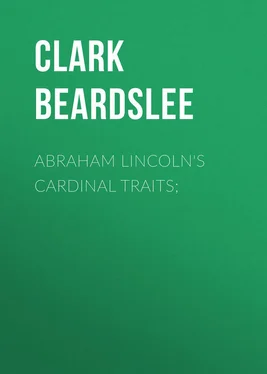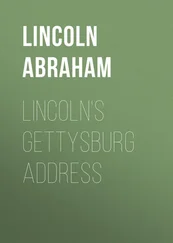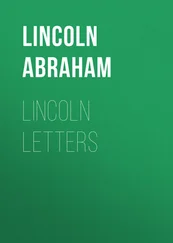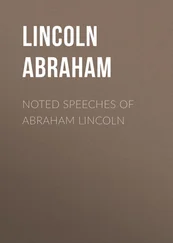Clark Beardslee - Abraham Lincoln's Cardinal Traits;
Здесь есть возможность читать онлайн «Clark Beardslee - Abraham Lincoln's Cardinal Traits;» — ознакомительный отрывок электронной книги совершенно бесплатно, а после прочтения отрывка купить полную версию. В некоторых случаях можно слушать аудио, скачать через торрент в формате fb2 и присутствует краткое содержание. Издательство: Иностранный паблик, Жанр: foreign_antique, foreign_prose, на английском языке. Описание произведения, (предисловие) а так же отзывы посетителей доступны на портале библиотеки ЛибКат.
- Название:Abraham Lincoln's Cardinal Traits;
- Автор:
- Издательство:Иностранный паблик
- Жанр:
- Год:неизвестен
- ISBN:нет данных
- Рейтинг книги:3 / 5. Голосов: 1
-
Избранное:Добавить в избранное
- Отзывы:
-
Ваша оценка:
- 60
- 1
- 2
- 3
- 4
- 5
Abraham Lincoln's Cardinal Traits;: краткое содержание, описание и аннотация
Предлагаем к чтению аннотацию, описание, краткое содержание или предисловие (зависит от того, что написал сам автор книги «Abraham Lincoln's Cardinal Traits;»). Если вы не нашли необходимую информацию о книге — напишите в комментариях, мы постараемся отыскать её.
Abraham Lincoln's Cardinal Traits; — читать онлайн ознакомительный отрывок
Ниже представлен текст книги, разбитый по страницам. Система сохранения места последней прочитанной страницы, позволяет с удобством читать онлайн бесплатно книгу «Abraham Lincoln's Cardinal Traits;», без необходимости каждый раз заново искать на чём Вы остановились. Поставьте закладку, и сможете в любой момент перейти на страницу, на которой закончили чтение.
Интервал:
Закладка:
This commanding fact, the moral mutualness of the innocent Lincoln's sorrows with the sorrows of a guilty land, is a primary factor in this historic scene. From such a moral complication momentous questions emerge. How can such confusion of moral issues be ever justified? Why do guilty and innocent suffer and sorrow alike? In such a glaring moral inequality how could Lincoln himself ever bring his candid mind to honestly acquiesce? Why should a later generation suffer vengeance for their father's sins? Why the black man's fate? How can moral judgments diverge so hopelessly upon such basic moral themes? If God's judgment is just, why are his judgments upon such inhumanity so long delayed? How about those kindred sufferings of those earlier days that for total generations were unavenged? Questions such as these must have risen in Lincoln's mind as he drained his bitter cup. Such questions are not to be evaded or suppressed. It should rather be said that Lincoln's undeniable gentleness in enduring, as the Nation's head, and for his country's sake, a Nation's curse for a national sin forces just such questions into sharpest definition, and focuses them insistently and unavoidably before every thoughtful eye. They are shaped and fastened here solely to render aid in indicating, as they undeniably do, the supreme refinement of Lincoln's friendliness. He held by kindly fellowship with his fellowmen, even when that fellowship involved his innocent life in the moral shame and pain of their reprobation and woe. Here is an interchange of guilt and innocence, in Lincoln's undeniable experience, undeniably resolved and harmonized. Here is human kindliness, triumphant, transcending all debate.
Around this exalted illustration of the strength and purity of Lincoln's benevolence cluster many statements eager to be heard. His kindness showed in many ways, but they were all but varying, accordant forms of pure neighborliness. His mastery of all malice, his unfailing charity, the kindliness of his cherished hope, his companionship with others' sorrow, his longings for peace at home and among all men, his pity for the bereft, his tenderness before our human wounds, his reluctance to go to war, his championship of the oppressed, his willingness to bear another's blame, his silence before abuse, his mighty predilections towards universal friendliness, are all concordant and coincident types and forms of his prevailing, spontaneous companionship with men. Each phase deserves elaborate description. But it is in closer keeping with the treatment here to name some general qualities of his kindliness, qualities that are common to all its forms.
His friendliness was immediate. When human needs appealed for comfort and aid, it was not his way to send a deputy. He appeared himself. Here is something nothing less than marvelous. An intimate friend of all, he stood in conscious touch with all the Nation's citizenship. At first thought this may seem to be in consequence and by means of his eminence and office as the people's president. As chief executive of the people's will, and as foremost representative citizen, he stood for every man in that man's place; and his universal friendliness found open avenues to every individual citizen's consciousness. Here is truth. But this truth only partially meets this case. The operations of his benevolence were somehow independent of space and time. His tours while president were short and few. Back and forth between the White House, the war office, and the soldier's home he wore a historic path. It is almost overwhelmingly sad to realize how almost all his movements while president were within the sorrow-shadowed walls and the hidden solitudes of his official home. As said before, he seemed to exist apart from men, in a pathetic isolation. Nevertheless, it is plain to all that Lincoln's uncalculating generosity reached, like the shining of the sun, to the limits of the land. It is most surprising when one thinks. But when one thinks, it is most clear that there was in Lincoln's kindliness a Nation-wide capacity for intimacy. In the open genial presence of his good-will all men feel they have an immediate and equal share. And this holds true whether one is near enough to feel the warmth of his living breath, or whether half a continent intervenes.
This fact forces into view and consciousness the pure excellence of his love. It was in its nature deeply real. He did in verity live close to every man. He wore no distant air. He practised no reserve. He felt and proved himself to be the kin of all. His pictured face and published speech were a perfect symbol, a convincing pledge to every honest man of close and equal partnership. His ways are often said to have been homely. But their very homeliness was all human and all humane. And in his presence, or in the presence of any truthful impress or echo of his life, no honest nature but feels itself instantly at ease and quite at home. This habitude in him of overcoming distance, and absence, and all other obstacles to his far-ranging love, and winning entrance everywhere into the affections of all kindly men, is a notable stamp upon the total texture of his friendliness. He stood with men in personal partnership, immediate, intimate, real.
And in all his intimate and immediate fellowship with men his personal contribution was entire. In his co-partnership he had no treasure too precious to invest. He gave his all. Imposing, almost impossible as is the meaning of these words, all mankind do recognize, and that with wondering reverence, that when Lincoln rose to take the presidential oath, he held nothing back. In his service of the Union he invested his life, his honor, his hope, even all he had. It was little else he had to give. His lineage was of the lowliest. His education was of the meagerest, and wholly a by-achievement. In social graces he was quite unversed and unadorned. He was no flatterer. The fawner's dialect he never knew. He would not boast. To beg he was ashamed. He was too honest for any knavery. Pure integrity was his only asset. As he took his stand at the presidential post, he stood without a single decoration, unsupported, all alone. It was literal truth that when he took his official oath the only bond he had to furnish was his naked honor. But that possession was no counterfeit. Its value did not fluctuate. It was solid gold. In his honest rating, the plighted faith in the words of his official pledge was beyond all price. As he discerned and understood the crisis of his day, the Nation's very being was at mortal stake. And when in that momentous hour she summoned him to take the presidency, she laid sovereign requisition upon his total being. And when he obeyed the call, he invested all. No reserve of his possession was kept in hiding for his refuge and reimbursement, in case the Nation failed. He ventured all he had, even all his honor. And this complete consignment by Lincoln to the Nation's use of all his moral wealth, of all his pure and priceless personal worth, was an act of unalloyed benignity. It was for the Nation's welfare that he devoted himself. It was that the Union might be preserved, and that all men might be free, that he plighted his integrity.
This investment of Lincoln's friendliness for the well-being of all the land, even of all the men therein, was not alone immediate, winning direct attachment to every man; nor merely all-absorbing on Lincoln's part, impressing into kindly service every value and every capacity of his total life; it also enshrined a deathless hope. Lincoln's patriotic devotedness was no venture of a day or of a decade. Lincoln's good-will looked far ahead. He had a passion for immortality. His total effort and aim in all his generous endeavors and hopes, as he served in his public life, can be defined as a sovereign aspiration that our government should be so guided and chastened in all its life that the Union should never be dissolved. To his kindly heart no possible event seemed more appalling than that this hope should fail. So far as his words reveal, this central, sovereign passion of his glowing heart was all but exclusively patriotic. He apparently forgot himself in his wistful anxious hope that the Nation's peace might long endure. His faith in the Union's indestructibility may be said to spring out of his undying continual love for his fellowman. Indeed just here seems to be the birthplace of all his prophetic ponderings over the final issues of our civic life. The very stature of the government which his ideal conceived and which he thankfully saw that our Republic designed, was deemed by him to be copied from nothing other than the divinely fashioned moral nature which he found alike in himself and in all his fellowmen. Deep within his friendly heart he cherished the vision of a Republic of freemen leagued together indissolubly as mutual friends. It was to realize and certify that hope that he dedicated his life. And when he pledged and sealed that offering, it was with no design that the seal should ever be broken, or the pledge be ever recalled. Here is another primary quality of Lincoln's friendliness. It was inwrought with personal durability. Grounded as was his civic hope in the freedom and conscience of Godlike men, it was impossible for him to consent that such a hope should ever encounter defeat or decay. Deep and sure within its essential nature were the urgent promptings and the soaring promise of immortality.
Читать дальшеИнтервал:
Закладка:
Похожие книги на «Abraham Lincoln's Cardinal Traits;»
Представляем Вашему вниманию похожие книги на «Abraham Lincoln's Cardinal Traits;» списком для выбора. Мы отобрали схожую по названию и смыслу литературу в надежде предоставить читателям больше вариантов отыскать новые, интересные, ещё непрочитанные произведения.
Обсуждение, отзывы о книге «Abraham Lincoln's Cardinal Traits;» и просто собственные мнения читателей. Оставьте ваши комментарии, напишите, что Вы думаете о произведении, его смысле или главных героях. Укажите что конкретно понравилось, а что нет, и почему Вы так считаете.












